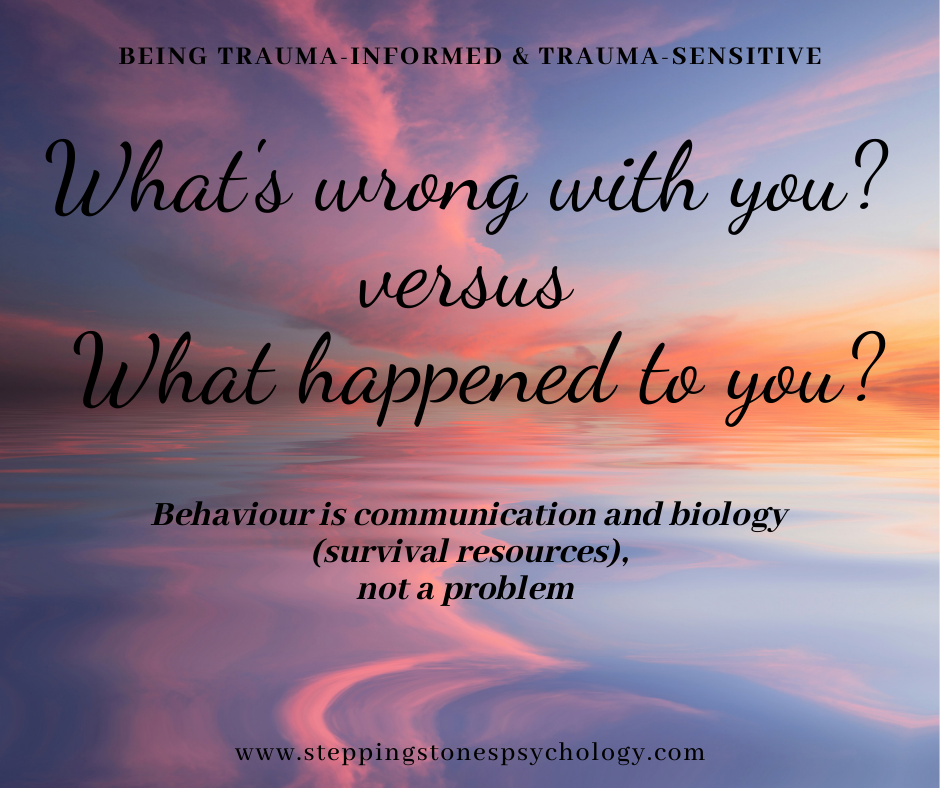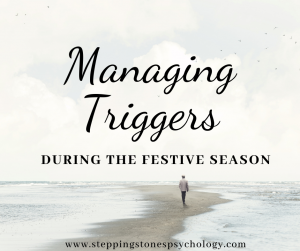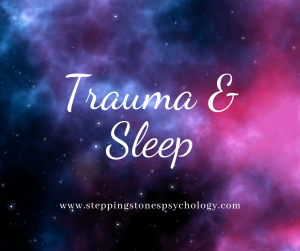By Sharmi Gowri-Kriszyk
Disclaimer: The psycho-education provided in this blog is inspired by a variety of resources that I have gathered through years of additional trauma training and further learning provided by other clinicians in this field, and is not my own work. Much of the information in this blog is inspired by the work of the Arizona Trauma Institute and what I learned whilst working in Chrysalis Associates.
As trauma is becoming increasingly more understood, we often hear terms like trauma-informed and trauma-sensitive. Especially, in the field of therapy, when seeking therapy for trauma, people often confuse a trauma-informed therapist with being a trauma therapist.
As someone who is trained to doctorate level within the discipline of Counselling Psychology here in the UK, one thing that has stood out and appealed to me, which was very different from the Clinical Psychology route in the UK, was the perspective of seeing a person as a whole, with their own set of survival resources versus seeing them as a pathological label. This is not only aligned with my personal values and morals, but also very much aligned with the trauma-sensitive approach I have been using in my clinical practice. For example, one significant core component of trauma-sensitive work is the perspective of ‘What happened to you’ versus ‘What is wrong with you’. It is a gentle, non-shaming and non-blaming approach.
When you as a clinician, therapist or practitioner approaches a client (or you as a person approaches a loved one) and thinks about what is wrong with you as opposed to what happened to you, take a moment to pause and notice. How does that change the way we approach a person. Then what about when we then take a moment to think about what happened to you as opposed to when we think what is wrong with you. What happens now? We will see them as a person through the lens of empathy, compassion and connection. Whereas, when we think what is wrong with you, we start to become judgmental and assign some level of blame to that person, consequently triggering their sense of shame. This will minimise, if not remove, empathy and connection. This approach also gives us an opportunity to use a strength-based approach rather than focussing on their weaknesses. Another part of this core component is the perspective of viewing challenging behaviour as a way of adapting (for example, a survival resource) versus the view that challenging behaviours are done intentionally with a purpose.
So if you are trying to find a therapist, a clinic or a school where you are seeking trauma-informed and trauma-sensitive services, these are some of the things you would want to explore:
- Trauma-informed and trauma-sensitive services overlook the behaviour and see the person (versus looking at the person as a problem): This approach overlooks the behaviour and sees the person, and where we try to understand that their behaviour is a way for them to communicate whatever is going on in their life. It validates the humanity of the individual and sees their behaviours as symptoms of biology and communication. Their behaviour is looked through the lens of how our body works under for example; stress, anxiety and trauma. This includes our brain and nervous system. This means that the approach would involve overlooking their behaviour to see the person as opposed to looking at the person as the problem. This will minimise the risk of us developing a judgmental attitude or us making assumptions about people. It will help us understand that their behaviours were their ways of surviving whatever was going on in their life and to communicate their unmet needs, rather than seeing them as problems.
- Trauma-informed and trauma-sensitive services validate the humanity of a person(versus marginalising and criticising a person): Clients who have had trauma, especially complex or chronic childhood trauma, can be a difficult group to work with. When people, including therapists and clinicians, hear that I am a trauma therapist, one of the first things they ask or tell me is that ‘they can be very difficult people and I can’t/won’t work with them’. Yes, it is true that this client group is very challenging to work with. I am often very drained after some sessions, but this experience also allows me to see that these people have faced some horrendous, terrifying and painful experiences. They did what they had to do to survive, and sometimes even though they are no longer in that sort of environment, their body and brain still react like that is not the case. It is important not to marginalise and criticise the person, but instead, try to validate the emotions behind their challenging behaviours. A gentle reminder when we struggle with this is to go back to the ‘What happened to this person versus what is wrong with this person’. Usually, when we start marginalising and criticising a person, it is because we have overlooked that question. So when we ask the question ‘what happened to you’ it opens up the opportunity for curiosity, connection, empathy and compassion. This then makes it easier for us to validate the humanity of that person and to show them dignity and respect and compassion.
- Trauma-informed and trauma-sensitive services see behaviour as symptoms of biology and communication (versus behaviour being seen as a problem): This approach encourages us to see behaviours as symptoms of biology. Behaviours are viewed as being connected to the biological system and communication. This means that biology is trying to tell us something is going on with them which they are adapting to or mitigating. They are trying to communicate a need that they have. So when people ‘act out’ they are trying to communicate something to us. Our job is trying to understand what these behaviours represent for this person. Does it mean they are feeling lonely? Does it mean they are being reminded of feeling abandoned? Does it mean they feel threatened? Is whatever they are doing making them uncomfortable in some way? You will have to be a detective and determine what the person is trying to communicate. According to this approach, when we see challenging behaviours, it is important not to be a detective who is looking for the bad but becoming a detective who is looking for understanding and asking ourselves ‘What is this person really trying to communicate to me’. The approach within non-trauma informed/sensitive services they will see the behaviour as the problem. Instead, we need to understand whether a behaviour is purposely learned biological behaviour and then we have to learn to anticipate it learn to find ways to intervene with it.
- Trauma-informed and trauma-sensitive services focus on the underlying issues or unmet needs (versus behaviour): When using this approach, the way of resolving an issue would be in a relationship-based collaborative manner. Often considering the role of attachment and trauma (versus taking on a behavioural-focused approach with an authoritarian role. Often involving punitive/shaming methods)
So are labels wrong?
Whilst I try to avoid using labels, especially labels that are pathologising, I have found them to be helpful as well. Labels can be used as a way of helping to identify a difficulty. This can be very useful as long as it is used in a non-patronising, non-shaming and non-blaming way (taking on a trauma-informed and trauma-sensitive approach). Whereas, other ways of using labels can be both pathological, blaming and shaming e.g. disorder or mental illness.
I have also observed that labels can be helpful as they can sometimes offer people validation. It can offer the opposite of ‘what’s wrong with you’ Instead, it helps them see why they have had certain challenges etc.
I also see labels as a way of helping identify some of the difficulties we, either personally or a client, have and understand our behaviours and to understand the underlying reasons behind our behaviours. This can then help to find ways to manage these behaviours. When using labels like addiction, co-dependency, personality disorder, narcissism etc, it is important to use a trauma-informed and trauma-sensitive approach, rather than purely focussing on the label, as that will otherwise create a negative shift such as what is wrong with you and become more behaviour focussed, as discussed earlier in the blog.
So are you saying abusive, toxic or unhealthy behaviours should just be accepted as a form of communication and biology?
None of this is to justify abusive or unsafe behaviours. Having certain survival resources or having had a difficult past does not remove us from the responsibility of our behaviour. All of us have moments when our behaviours can be unhealthy, or even unsafe – towards ourselves and/or towards others. This is especially the case if we have been modelled unhealthy ways of communicating and engaging with others in our childhood and when growing up. However, we still have a responsibility to take actions to work on these behaviours, especially if they involve toxic relationships and being abusive. The more we work on ourselves, the more we become aware of when we are in these states and find ways to navigate them in healthier ways. It is an on-going process where we continue to unlearn and relearn the patterns of our behaviour. It will be a lifelong practice, which will help you create more space for self-compassion and compassion for others.
For more trauma-informed and trauma-sensitive resources, please join my free Facebook group: https://www.facebook.com/groups/PTSDandTraumaSupportPackage and my Facebook page: www.facebook.com/steppingstonespsychology
Other resources:
Specialist Trauma Therapeutic Services: To find out more about the trauma-informed therapeutic services offered by Stepping Stones Psychology, please follow this link: https://steppingstonespsychology.com/events/
Specialist Trauma Therapy: To find out more about specialist trauma therapy by Stepping Stones Psychology, please follow this link: https://steppingstonespsychology.com/specialist-trauma-therapy/
Specialist Trauma and cPTSD Therapeutic Membership Package: To find out more about the membership for a Specialist trauma and C/PTSD Therapeutic Support Package. , please join our private Facebook group: www.facebook.com/groups/PTSDandTraumaSupportPackage/
Research for CPTSD, PTSD and Trauma: To support and partake in a UK-based research for survivors of trauma, PTSD and CPTSD, please follow CPTSD & PTSD Research UK via this link: https://www.facebook.com/groups/2348717965433957/
Vision & Mission of CPTSD & PTSD Research UK: This group involve research and resources, including some excellent trauma-informed blogs. CPTSD & PTSD Research UK is found by Nic Jonwik Strang, and you can read more about her story, vision and mission here: https://blog.ptsdresearchuk.co.uk/2020/06/about.html
©2020 Stepping Stones Psychology. All Rights Reserved





Heya i’m for the first time here. I found this board and I
find It truly useful & it helped me out a lot. I hope to give something back and help others like you helped me.
I was recommended this web site by means of my cousin. I am no longer sure whether or
not this put up is written by means of him as no one else
understand such precise about my problem. You’re wonderful!
Thank you!